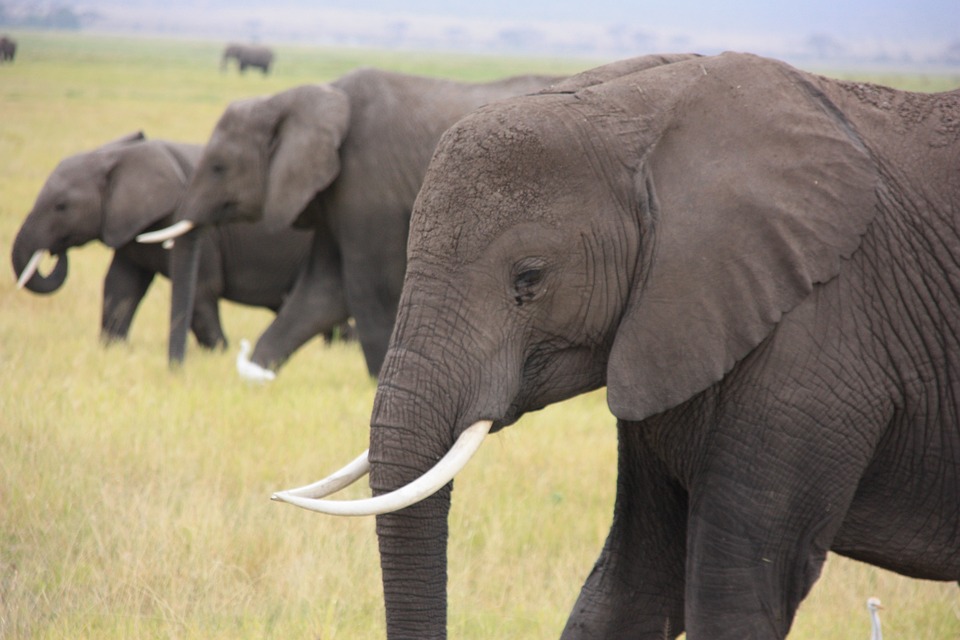 World Elephant Day is August 12. But why do elephants get their own day? They’re just that cool, for one thing. And they’re endangered. WorldElephantDay.org explains: “The elephant is loved, revered and respected by people and cultures around the world, yet we balance on the brink of seeing the last of this magnificent creature.”
World Elephant Day is August 12. But why do elephants get their own day? They’re just that cool, for one thing. And they’re endangered. WorldElephantDay.org explains: “The elephant is loved, revered and respected by people and cultures around the world, yet we balance on the brink of seeing the last of this magnificent creature.”
Elephants are highly intelligent, with excellent memories and the ability to recognize themselves in reflections. They develop strong bonds with each other and live together in communities. Female and juvenile elephants herd together in groups led by matriarchs, while adolescent and adult males form their own separate herds. Elephants work collectively to protect their young, and they appear to mourn their dead.
Their survival is also linked to our own. As elephants travel throughout their habitats in Asia and Africa, they spread many, many seeds, enabling forests to thrive and grow. The new trees absorb carbon dioxide and this helps to slow down climate change.
Yet, due to a combination of poaching and habitat loss, elephant populations have dwindled at an alarming rate, with a 62% loss in the last decade. There is still hope for future generations of elephants and humans, but it depends on prompt action to reverse this trend. Let’s jump to it, shall we?
What we can do to help:
Educate ourselves and spread the word. DBRL owns several DVDs about wildlife. “Soul of the Elephant” was produced by conservationists Beverly and Dereck Joubert, who spent two years following and filming elephants in Botswana.
Don’t buy or sell ivory. Keith Somerville’s book “Ivory, Power and Poaching in Africa” tells how the demand for tusks has decimated elephant populations. Though governments around the world are restricting trade in ivory, there’s still a lot of illegal commerce going on, and much of the money funds terrorism.
Do not support organizations that exploit or abuse elephants for profit. “Last Chain on Billie” exposes the cruel history of circus elephants in the United States. Carol Bradley shares the story one mistreated (but eventually freed) animal in the context of a larger history.
Limit consumption of foods containing palm oil. Palm oil plantations have destroyed acre upon acre of elephant habitat.
Support organizations that help elephants. The Elephant Sanctuary provides a healthy home for formerly captive elephants. The World Wildlife Fund works on behalf of endangered species around the globe. A longer list of organizations can be found here.
If you enjoy watching elephants being themselves, check out this elecam.


